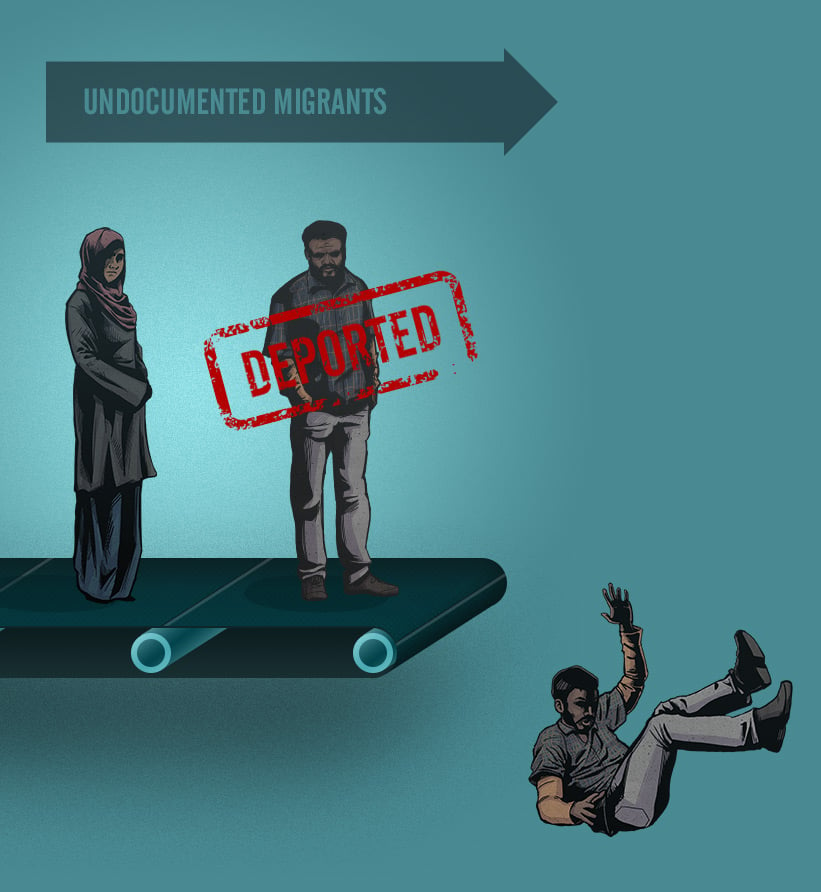The rights of all migrants, regardless of their legal status, should be protected.
States have the right to regulate migration and to deport those who violate their laws, but must recognize that these very laws also induce undocumented migration. Disproportionately penalizing migrants is neither an effective nor just solution to encouraging legal migration and improving national employment rates.










